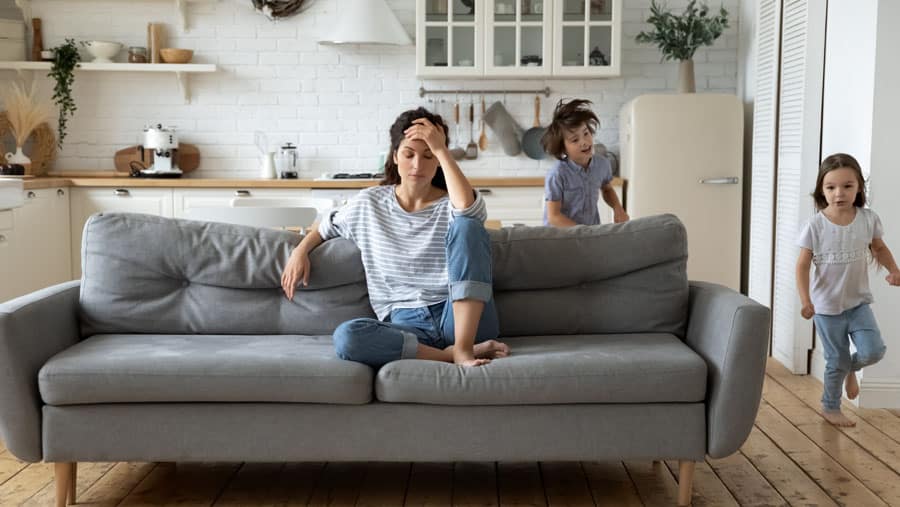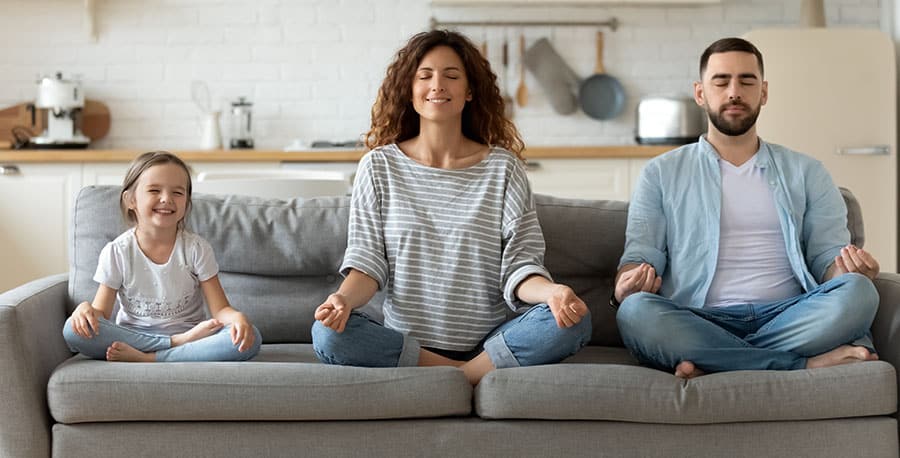A Careful Look At Mental Health In Quarantine
Our healthcare system has been struggling to keep up with the onslaught of COVID-19 cases. So have the people who have lost their health insurance due to skyrocketing unemployment. Like it or not, 2020 has seen a world transform to something of an unnerving environment for many people.
This, coupled with the lack of political action on the part of state and federal representatives to provide financial relief and the general isolation of quarantine, has created a dangerous environment for national mental health as substance abuse and suicide rates skyrocket.

A study published by the CDC found that US adults report a heightened level of adverse mental health conditions associated with COVID-19 and the international shut down. The study found that young adults, minority populations, essential workers, and unpaid adult caregivers experienced a disproportionately negative effect on their mental health compared to the general population.
As of June 2020, nearly half of the US adult population reported struggling with mental health or substance abuse issues, with 31% of adults reporting anxiety and depression symptoms. 13% of adults that participated in the study cited they began substance or increased their substance use due to the pandemic.
Of that group, 11% of people reported seriously considering suicide.
The Rise In Suicidal Ideation
Recent statistics have shown a rise in suicidal ideation among the general public in the US. The emotional and psychological impact of COVID-19, grouped with its shifting economic effects, has led to an overwhelming sense of hopelessness for many people.
The Mayo Clinic published an article discussing the increased mental health risks associated with COVID-19, especially concerning existing mental health conditions.
These existing mental health conditions, such as severe anxiety and depression, are put under immense stress as unforeseen financial pressure, and the restriction of regular coping mechanisms take a toll on US citizens. People who have spent years developing methods to cope with their mental health conditions find these methods (such as support groups or exercise classes) heavily restricted. Sometimes, they are even impossible to continue due to social distancing guidelines and statewide or national shutdowns.
Protecting Your Mental Health During COVID-19
Health Insurance
Access to health insurance is vital, considering that medication and therapy are two of the most critical pieces to support public mental health.
Most therapists accept PPO insurance. If you have an HMO insurance policy, psychologists and psychiatrists within your network will accept your insurance. Each network (ex. Blue Shield of California, Kaiser Permanente) has a website where you can find therapists in the area that are covered by your specific insurance plan. To figure out whether you qualify for full-to-partial coverage of substance abuse treatment, click here [LINK].
Medicaid also offers mental health care. Medicaid is the single largest provider for mental health services in the US and accounts for about a fourth of revenue for community-based mental health care.
Psychology Today provides a service that matches Medicaid patients with local therapists.
Therapy
In quarantine, the days can start to blend together. Many people are sitting at home reeling through the same routine. Others are essential workers, working long days in masks and risking exposure to a virus we seem to understand little about.
It is essential to make space to reflect on what you have been feeling and experiencing through this time.
Therapy provides a confidential and open space to work through the significant changes and adjustments this last year has brought about for many of us. Therapists can provide tangible coping methods to help your specific mental health needs and shine a light on what the international pandemic may be triggering in you.
Though many therapists choose not to see patients in person at this time, many others are offering digital counseling services and hybrid models. These models aim to support patients while also following distancing guidelines.
Different Psychological Therapies
Many different practices are utilized within the psychology field to assist in a patient’s mental health.
Cognitive behavioral therapy (CBT) focuses on changing unhealthy behavioral patterns and eliminating any cognitive dissonance causing conflict within a patient. CBT helps a client with their emotional well-being and mood regulation. This form of therapy develops personal coping programs that take a practical approach to problems within an individual’s life.
Many providers utilize dialectical behavior therapy (DBT) to address suicidal ideation, mood disorders, and substance abuse. This psychotherapy focuses on teaching patients new skills to resolve conflict within their interpersonal relationships and manage overwhelming emotions.
Family and couple therapy can help resolve an interpersonal conflict that has come about because of quarantine’s immense stress. Therapists often create a fair and understanding space for loved ones to confront and resolve specific issues and general needs in the relationship. It can be extremely helpful in shining a light on unhealthy dynamics, consistent triggers, and stagnant patterns among family members and romantic partners.
Many forms of expressive therapy can be helpful while in quarantine. Art therapy and music therapy are forms of treatment rooted in the notion that personal creation is a means of personal wellness. These therapies can help an individual who does not find traditional talk therapies as effective in their healing process.
Personal Coping Methods
Grounding
When things feel out of control, it can help to utilize different grounding methods to develop a sense of calm in an unsure environment. Some people choose to use anchoring phrases while others use observations of their physical environment. There are dozens of grounding techniques and they can be used individually or in combination with other coping methods to help with anxiety or panic attacks.

Therapist Aid, an online resource that provides therapy worksheets, tools, and videos, offers a helpful guide through several different mental and physical grounding techniques.
Journaling
Expressing negative emotions helps us to process and work through the events and reactions that often sit heavily on our chests. Journaling is a unique and ancient form of processing that can prove helpful as we all adjust to our new status quo.
There are many forms of journaling from stream of consciousness on blank pages to journaling with prompts that create a pattern of written thought. More visual people can incorporate scrapbooking and sketching to express their inner thought processes on paper.
Physical Activity
Finding a way to remain active while following social distancing guidelines can help balance mental health. Physical activity releases important neurochemicals that help to regulate our emotional health and well-being.
Yoga can provide a balanced means of physical and mental wellness. This physical and spiritual practice aims to create harmony between breath and physical movement. Many fitness instructors are currently utilizing online platforms to lead classes in everything from Vinyasa Flow yoga, an energetic form of the practice, to Yin yoga, a slow-paced and mellow form of the practice.

Though the national and state parks systems are operating at a limited capacity, nature trails and public parks are still open. Exploring a new area and catching some fresh air can help change up a revolving routine.
The National Park Service provides a resource to find your closest national park.
Make sure that you research the area you are planning to visit and bring someone with you. Always pack enough water and supplies for your planned activity and track the weather before exploring a new outdoor environment.
Socializing While Social Distancing
Setting up a regular time to catch up with friends and family can help undercut feelings of isolation and instill a small sense of normalcy during this pandemic.
Many people are setting up regular video luncheons and game nights. There are several apps that allow you to watch movies or play games virtually with your friends and family. People are video chatting and participating in art sessions or virtual workout classes together as a means to stay connected.
Many alcohol and drug recovery programs have moved to virtual platforms. Recovery meetings are still being held nationwide for people with drug addictions and most inpatient programs have their updated provisions available on their website
Here is a link to the online options currently provided by Alcoholics Anonymous.
Though it is important we follow distancing guidelines, reaching out and connecting to our community is vital for our sense of stability and mental well-being.
Are You Struggling To Stay Sober?
For many people with a history of addiction that are currently in self-quarantine, this sense of isolation and lack of control can be a major stressor. These stressors are a common cause of relapse. There is currently a significant rise in substance abuse as well as a decline in overall mental health since the beginning of the COVID-19 pandemic and the international shutdown.
If you find yourself struggling to create this sense of community and to remain committed to your sobriety, we have several programs that encompass a range of treatments aimed at creating and maintaining harmony for our clients.
Our Commitment To You
At Hotel California By The Sea, we are committed to providing a sustainable and consistent recovery community despite the current challenges presented because of COVID-19. We have substance abuse treatment centers in three states that offer informed and effective addiction recovery treatment.
We have adjusted all programs to ensure we are abiding by social-distancing rules in accordance with national and local guidelines.
We offer outpatient treatment and residential care for clients looking to overcome addiction to substances. Our outpatient program utilizes a mix of cognitive-behavioral therapy, dialectical behavior therapy, counseling, group therapy, and other evidence-based therapies.
Our experienced team of addiction specialists is dedicated to each client’s emotional and physical well-being, as well as their overall long-term recovery from substance abuse.
If you or any one of your family members have any questions regarding our addiction treatment programs, or regarding our current COVID-19 provisions, please call our program experts. We’re available 24/7 to assist you.
